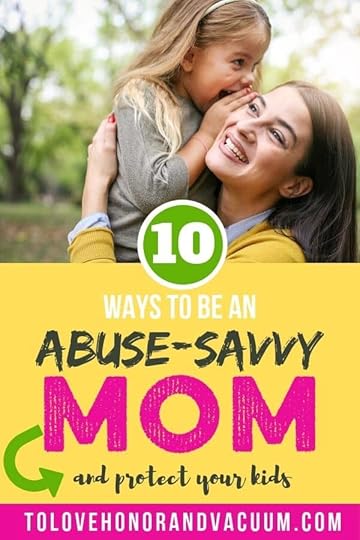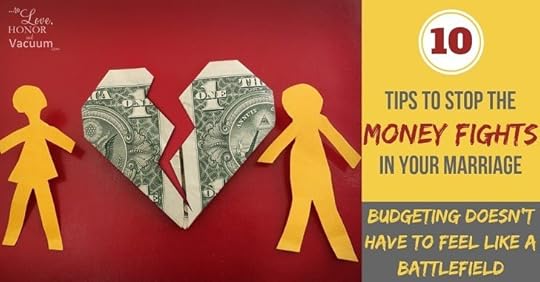Sheila Wray Gregoire's Blog, page 73
October 8, 2019
10 Tips for Newlywed Brides Who Haven’t Had an Orgasm Yet
What do you do if you’re in the newlywed phase, but you’ve never had an orgasm?
This week we’ve been talking about the “figuring things out” stage of sex, and I’ve been explaining that, for most people, the best years of sex in marriage are not actually the honeymoon years. They’re years 16-24. For most, it takes a while for things to start working great!
That doesn’t mean, though, that I think people should just put their feet up and give up and think, “oh, well, I guess it will take 10 years or so for this to feel better.” Not at all! In fact, I think if we can understand the dynamics that often cause sex not to be great right off the bat, then we can make better progress and really experience some bliss.
Yesterday I was addressing those for whom the honeymoon years have come and gone, and who need to grieve what they have missed out on. Today I want to talk to those of you who are still in those years, to encourage you that things can get better, and hopefully quickly, too!
1. Don’t be content with one-sided sex.
Yes, 1 Corinthians 7:3-5 says:
The husband should fulfill his marital duty to his wife, and likewise the wife to her husband. The wife does not have authority over her own body but yields it to her husband. In the same way, the husband does not have authority over his own body but yields it to his wife. Do not deprive each other except perhaps by mutual consent and for a time, so that you may devote yourselves to prayer. Then come together again so that Satan will not tempt you because of your lack of self-control.
1 Corinthians 7:3-5
We aren’t to deprive each other, that’s true. But take a closer look at this passage. BOTH the husband and wife owe something to one another. It isn’t a one-sided thing; wives are not to be deprived either! If you are in the newlywed phase, and you are having sex but he is the only one having an orgasm, then you are the one being deprived. And it’s biblical to speak up and ask for your needs to be considered as well, because you matter. Sex is supposed to be mutual.
Last week a woman left this comment on an older post:
When we were newlyweds my husband didn’t seem to care much for my pleasure at all. He wanted it almost every night, but he’d rush through it and go back to watching football. The whole process lasted 10 minutes, if that. He came from a very strict evangelical background, where he was taught the wife was supposed to be “always available”. On the other hand, my parents are atheists and my upbringing was very secular, to put it mildly. I didn’t find the Lord until I was 25, and I had prior relationships. So the attitude he brought to the marriage was appalling to me. I tried gently explaining to him several times, but it fell on deaf ears. Finally I just told him we weren’t having sex until he at least made an effort to make it pleasurable for me as well. That went over like a lead balloon. He got angry. He sulked. He consulted our pastor, who got his wife to take me aside for a chat. She told me “As women, our job is to be available whenever called upon.” I remember getting angry and telling her that I ought to just buy him a flesh light. He can call on that, because he’s treating me like one.
The thing is, I’m the kind of girl who likes her husband to take the lead in the bedroom. But I had to take the reins myself and insist that he learn how to make love to me instead of using me. And I mean insist as in “I won’t let you inside me until you put forth your best effort at making me feel good.” Eventually his libido got the better of him and he gave in. It was a long process but he slowly and steadily got better. And as he improved, our overall intimacy improved as well. He later confessed that growing up he was told that the only thing women really get out of sex is babies. It makes me so angry that some people actually believe that.
On a positive note, nowadays things are 1000% better. He’s a wonderful husband and lover. But back then I was a very new Christian, and I had doubts about whether or not I was doing the right thing.
The fact that Christians talk about sex as if the husband’s pleasure is all that matters is so distressing to me. She was not refusing sex; she was refusing one-sided sex. She was saying, “I will not be treated like an object. That is diminishing the worth that God has given me, and diminishing the beauty that God created sex for.” I’m so, so sorry that the message that has been taught in churches (and in best-selling books like Love & Respect) has been far too often that women owe men sex, and that women need to agree to their own objectification. That is such a distortion of God’s plan for sexuality. (and to understand that plan better, please see The Good Girl’s Guide to Great Sex!)

God made sex to be AWESOME!
It’s supposed to be great physically, emotionally, and spiritually.
Feel like something’s missing?
Check out The Good Girl's Guide to Great Sex!
So it’s okay to speak up and say,
“Babe, I want to have as much sex with you as I can! But it needs to be about both of us. And we have to figure this out now. I don’t want to be treated as an appendage that you use. So let’s work on this together!”
2. Understand that the patterns you develop now around sex will be much harder to untangle in the future.
Here’s why this is so important: It’s much harder to undo habits that have already been established than it is to establish new ones. The longer you say nothing and allow him to have intercourse while you feel very little, the more he will think, “I must be a good lover, because she’s not saying anything,” and “the problem is with her and she needs to figure this out.” He won’t realize that this isn’t YOUR problem; it’s a COUPLE problem. And it needs both of you to engage to fix it. But the longer you let it go on like this, then the more difficult it will be when you finally want to insist that things become more mutual.
3. Realize that most women reach orgasm easier for the first time through something other than intercourse.
So you want to speak up and do something about it. Great! But where do you start?
First, realize that it’s easier for most women to reach orgasm first through direct stimulation (either manual or oral) than it is with intercourse. That’s because it’s the clitoris that gives women the most sexual pleasure, and it’s harder to stimulate the clitoris through intercourse than it is through other means. That doesn’t mean that you can’t reach orgasm through intercourse. However, orgasm becomes easier when you understand what it feels like and understand what precedes orgasm, so that you can “ride the wave” of the orgasm. Learning this when you’re able to concentrate on what he’s doing without having to feel like you need to reciprocate in some way or without being distracted by other stimulation through intercourse is often easier.
One of the blocks that couples need to overcome is the idea that “he enjoys sex” and “she doesn’t enjoy sex” so the solution must be that she just needs to learn how to enjoy sex! But that’s seeing sex through a husband’s lens. The truth is that most women enjoy things differently than most men do. Women do not have to catch up to men. Instead, our bodies (and specifically our clitorises) were created so that men would have to slow down and spend some time concentrating on women.
4. Take your time–and figure out what arouses you!
This means that you’ll have to dedicate some time to figuring it out. One thing I suggest in 31 Days to Great Sex is to set the timer for 15 minutes, and during that time she isn’t allowed to move. He just gets to touch her or stimulate her. Sometimes we women feel like we’re taking too long, and “I should be aroused by now”, so we short-circuit the process. Give yourself permission to not short-circuit it! Let yourself be the centre of attention for a time, without having to feel like you have to reciprocate.
It’s not that you won’t ever reciprocate, but for most women, reaching orgasm does require some concentration. If you’re simultaneously thinking about how to make him feel good, it can be difficult to get enough stimulation. So take that time. And if you need more than 15 minutes, take it! It may even be a good idea if you’ve been married for a while and you’ve never reached orgasm yet to set aside an entire Saturday when you’re going to spend it in bed, figuring this out.
Get some snacks and water and chocolate handy by the bed, and try some stimulation for half an hour, and then have a bath together, and then try again, and then transition to a naked massage, and then try again, and then try a shower together…and so on.
But keep going until you figure it out!
Do you yearn to have a more meaningful–and fun–sex life?

Check out my 31 Day challenge that you do with your spouse. Super easy–just read a few pages a night and do what it says. Learn to talk more, flirt more, be more affectionate, spice things up, deal with baggage, and so much more!
No blaming. Just solutions–and a whole lot of fun!
Let's try it!
5. Direct him–using your hand–so you have constant bio-feedback.
To get super practical, one thing that can help is that you hold his hand, or a few fingers, and rub yourself with them. That way he learns how you like to be touched. And because you’re receiving the feedback from your own body, you’ll adjust the pressure and timing as arousal builds. Then he can get used to seeing what that arousal looks like/feels like. I realize this is something that takes a bit of confidence, and can make some of you feel awkward. But it is a great way to teach him. And, hey, you can always return the favour and he can show you what feels good, too!
If you just can’t do this, then play the “do you like it this way or that way” game. Have him try one thing for one minute, and then another for one minute, and you decide which is better. And then he can keep varying the technique until you find something that works perfectly!
6. Practice being mentally present and “ride the wave”
Orgasm is very difficult if you’re worried or preoccupied about anything else. So don’t let yourself wonder what he’s thinking. Don’t let yourself feel self-conscious. Keep telling yourself, “My husband wants to learn how to make me feel good, and he’s enjoying this!”
If you find other things entering into your brain, try to shut them off by asking yourself, “what feels good now? What is my body feeling?” Keep that running commentary going in your brain, and it’s less likely stray thoughts will take over.
BOTH the husband and wife owe something to one another.
(Click here to tweet this quote)
7. Change up your breathing, and tense & relax
Sometimes changing up your breathing can also help orgasm happen. I wish I could give you a definitive one on this, but different women respond differently. So I’d just say this: if what you’re doing isn’t working, change it up! For some women, holding their breath so you get that blood rush helps orgasm. It also helps you concentrate and builds urgency. For others, they’ve held their breath so much that oxygen levels are getting lower and that makes orgasm more difficult. Tensing your muscles in your legs and buttocks can also help build orgasm (and tilting your pelvis forward can direct pressure and blood flow on the clitoris), but for others, relaxing helps.
If you’ve been doing it one way and it’s not working, try the opposite. Either hold your breath and tense, or relax and breathe deeply. And you may find that relaxing and breathing deeply works well until you’re almost there–and then holding your breath is better. Squeezing your vaginal muscles (doing Kegel exercises) can also build arousal. Just try a whole bunch of things, and see what helps!
(One tip: once you do reach orgasm, try relaxing and deep breathing, and you’re more likely to turn it into multiple orgasms!)
8. Vary up the type of stimulation
If him rubbing your clitoris with your fingers is becoming too intense or too much, have him switch to a flat hand instead of a finger. Or have him pay some attention to your breasts. Sometimes, too, things that we don’t particularly like when we’re not very aroused become much more pleasurable right before orgasm. Many women don’t like their nipples touched, for instance, but right before orgasm they do. So if you’ve told him you don’t like one thing, don’t be afraid to try it again later. And many women find that oral sex is more pleasurable than him using his fingers. If you’re nervous about suggesting different things, try something fun like the dice game or even the Ultimate Intimacy App!
9. Understand how hormones & contraception can affect your ability to respond sexually.
Many women report that they have a much easier time reaching orgasm once going off the Pill. The contraceptive pill does affect hormone levels, which are largely responsible for arousal. You can read what my readers have said about the Pill here.
Our hormone levels do naturally fluctuate over the course of our menstrual cycles, too, and, in general, women tend to be more sexually responsive right before ovulation. If you’re going to set aside that Saturday to try for an extended period of time, choose a day before ovulation, not one right after!
10. Do your research–and keep researching!
Finally, keep reading, keep trying new things, and don’t give up! One commenter said:
My husband was so patient and understanding when we got married and it really paid off in the long run. When things weren’t working we read Christian marriage books, talked about it, and practiced until we figured things out. He never made me feel bad that it was more difficult for me than for him. He is reaping the rewards now lol [image error]
October 7, 2019
How Do You Grieve the Honeymoon Years You Never Had?
What if the honeymoon years passed you by, and sex was never good?
How do you come to terms with the fact that you’ve missed out on something you can never get back?
Over the month of October I’m going to be talking about the different stages of sex in marriage, and we started this month with the “figuring things out” stage of sex–those first few years when things are new, and you’re getting adjusted to sex. Even if you had sex before you were married, things are still different now. Sex means something different. And often it changes.
I’m gearing up to talk about the years when life gets busy with little kids this Wednesday, but before we move on to that, I want to address a few more things about this early stage. Tomorrow we’ll be looking at 10 tips if she has never had an orgasm yet, but today I want to turn to this one: How can you process grief if you feel like you’ve lost time you’ll never get back?
On the comments to last week’s post, this theme came up several times. Here are just a few:
I grieve it daily it seems! It’s SUPER hard for me to get over (aka I’m nowhere close). I’ve been trying to pray about it and release it and give it to the Lord, but that deep deep feeling of mourning and loss just won’t go away. And me feeling like I’m getting old really quickly and like babies have just totally destroyed my body/shape isn’t helping. And the worst part is that I feel such resentment over it towards my husband…I blame him for being fat and not trying to attract/woo his new bride, and I also blame him for doing no research about why I wasn’t orgasming and thinking to himself “hmm, how can I become a better lover?” Instead, he basically thought “that sucks that she’s not orgasming. I wish she would. But there’s nothing I can do. Oh well, at least I am. I guess that’s just the way it’ll be”….I also find myself thinking that time is running out. If there’s no marriage and no sex in heaven, then this is our only chance to experience it!…But just knowing that this is our only chance to make sex great / the only time we’ll physically be young (& that lessens with each passing year and day) gives me serious FOMO!
Natalie
Married for a few years, never learning how to make sex feel that great
I know that for me, two of the things that I struggle with the most in this is resentment and losing hope. It’s hard to not resent the fact that my husband has such an easy time with this, and honestly, not resenting that God made this so hard for women. And even though I know that I’ve made progress, I can’t help thinking that I should have beat this by now. It’s hard to keep hoping that sex will ever feel good for me, or that by the time I figure it out, my husband will have given up on it.
Becky
Married for a few years, struggling with vaginismus (pain during sex)
I’m now a mid 40’s loving faithful husband craving for affection and connection. We never made those fun memories you write about. Getaway weekends, marathons, exploring each other. Let alone just plain good ole’ sex. Where we should be right now is totally comfortable around each other and hitting those good old years of understanding each other. Yet we aren’t even close. Hope? Gone…Its not just about grieving the past and what we missed out on but knowing that with with every passing day…more time is lost. Grieving for the future is hard too.
Nick
Married for a few decades, in a sexless marriage
There’s a very real feeling that you have lost something precious when sex during the newlywed period isn’t that great.
I’m not going to sugar coat it. When you’re young, you tend to be in better shape. Health problems haven’t impacted sex yet for most people. You have more energy and fewer responsibilities, so you’re in the best position to have those “sex marathons”. You look the best you likely ever will. Neither of you has put on the weight that’s likely to come over the next few years. In many ways, this is the ideal time to enjoy sex.
And yet, for so many of us (even most of us), the honeymoon stage is not that wonderful when it comes to sex. As I’ve said repeatedly, when I did the surveys for The Good Girl’s Guide to Great Sex, the best years for sex in marriage are years 16-24. Yet our expectation that the early years of sex should be great can lead to such disappointment when they’re not.
It’s okay to grieve what you’ve lost–especially if the loss is significant.
I remember, about 10 years after I had married, sitting in the basement inside an empty house and just screaming. Like for Becky, sex had been so painful for me when I was first married, but I had been taught that my husband wouldn’t feel love and that I would be a failure if we didn’t have sex. So I forced myself through the pain, even though Keith told me I didn’t have to, because I was so scared of losing him and so scared of failing. And that set up a whole host of horrible repercussions with how Keith felt about sex and how I felt about sex. It took years to disentangle them. And when things finally were working well–every now and then that anger and rejection would creep back up, and I couldn’t get rid of it.
So I screamed. And screamed. And screamed.
I still feel so sad for young Sheila. And that’s one reason why I talk so much about vaginismus, or pain during intercourse. I want women to know that God does not expect you to endure pain just so your husband can feel loved. I want you to know that there are treatments. I don’t want anyone yelling in a basement, 10 years into their marriage, feeling so unimportant, as if you’re just a receptacle. Because that’s what it felt like for me, and that made the recovery so much harder.
Yes, there was a lot to grieve. There was anger to work through towards God, based not on what God said, but on bad teachings that I had heard growing up. Those teachings, combined with my physical pain, hurt me. They stole years of my life. If I had just gotten treatment properly, and if we had handled things properly, we would have been much further ahead much faster.
Nevertheless, I was still a fortunate one. For me, vaginismus did resolve once I was able to get over my trust issues with Keith, and once I was able to learn to control those muscles (I think it was primarily ballet that messed up my pelvic floor). For many of my readers, Becky, included, it has not resolved as quickly. So what would I say to you?
Separate the grief over losing your honeymoon years from the anger at God
Things don’t always go as we had planned. But sometimes the things that we have been taught as Christians make the honeymoon years even worse, and make us feel even worse, because we project onto God things that He never said. This anger can be due to two things:
Thinking that God was asking you to do something that was hurting you, even though God wasn’t
In my case, I thought the important thing was that I have intercourse, no matter what my experience. I didn’t understand that God didn’t want the act of intercourse; He wanted intimacy. For more on that, please read:
We Need a New Definition of Sex
10 Times You’re Allowed to Say No to Sex
The Good Girl’s Guide to Great Sex
But then there’s something even more common. I hear from so many women who have sex and it feels lousy, but they keep doing because they think it’s their duty. They don’t realize that it’s actually good for them to speak up and say, “you know, this should be good for me, too, and having one-sided sex is not what God intended, nor is it pleasing to God.”
It’s much harder to process the honeymoon grief if we think that God contributed to it by asking us to endure being used. Understanding that this is not His will at all can help you move forward.
Thinking that God was promising you great sex if you did everything right
It’s easier to grieve what was lost if you’re making progress.
(Click here to tweet this quote)
Here’s something slightly different we may need to work through: Many churches and youth groups have taught young people that if they just do everything right, and if they wait for marriage for sex, then sex will be awesome. Then they get married and they feel cheated. They did their part of the bargain; why didn’t God do His?
However, God never promises that sex will be awesome right off the bat if you do things right. He asks us to wait for our own good (and I explain this in detail in The Good Girl’s Guide), but He doesn’t promise that. If we let go of this idea that God has cheated us out of something, it can be easier to deal with our disappointment, too.
It’s easier to grieve what was lost if you’re making progress.
One of the most common ways of emotionally derailing yourself is to develop black-and-white thinking: “It’s been terrible so far, so it will always be terrible. It will never get any better.”
On the contrary, if you can take those thoughts captive (2 Corinthians 10:5) and tell yourself the truth, you can move forward.
My first few years were disappointing sexually, but that doesn’t mean that the rest of my marriage needs to be. I can still move forward. The future is not written yet.
Work through 31 Days to Great Sex together, which helps you talk about sex; figure out what feels good; deal with sexual baggage and other problems; build your emotional closeness; and so much more. Or, if you’re struggling to process trauma, seek out a licensed therapist. Get help and accountability for porn use. See a pelvic floor physiotherapist. Just don’t give up!
Do you yearn to have a more meaningful–and fun–sex life?

Check out my 31 Day challenge that you do with your spouse. Super easy–just read a few pages a night and do what it says. Learn to talk more, flirt more, be more affectionate, spice things up, deal with baggage, and so much more!
No blaming. Just solutions–and a whole lot of fun!
Let's try it!
Let’s rethink the honeymoon years: Many people feel more confident, and more themselves, at 45 than they do at 25.
My biggest piece of advice, though, would be this: Do not assume that because the 20s have passed you by that your best years are behind you.
Believe me–most women especially feel far more confident and sexually themselves at 38 or 45 or 50 than they do at 25. Your body may not be as good as it was then, but confidence counts for so much more! I feel more myself now. I feel as if Keith and I have grown into the type of people we were meant to be. We didn’t know yet who we were back then. To think that sex is going to be the best when you’re still relatively immature; when you don’t know each other as well; when you aren’t as confident in yourself–well, it’s not realistic. It’s okay if sex gets better later!
Let’s be great sex ambassadors and help others.
And now, one more word of encouragement. Tell others who are just getting married now that sex does not have to be amazing right off the bat. But also tell them that it likely won’t be amazing if they don’t speak up for what they want. It won’t be amazing if they don’t stress their own pleasure (if they’re women). It’s going to be a learning curve, so be sure to make it into a fun research project! Suggest that engaged people get The Good Girl’s Guide to Great Sex or take my Honeymoon Course to learn how to start off well (and hopefully prevent a lot of these problems).
Are you ready for the honeymoon you always dreamed of?

The Honeymoon Course is here to help you plan the perfect honeymoon and start your marriage (and your sex life!) off with laughter, joy and fun!
Don’t make the same mistakes other couples have–get it right from the beginning!
Learn more
We surveyed our email list (are you on it yet?) a month or so ago to see what people wanted to hear more about. And one thing that came out of that survey was that people who bought The Good Girl’s Guide to Great Sex were 1.3 times likely to be satisfied in their sex life, and 1.5 times more likely to be satisfied in their marriage, than those who had not. It seems to have a protective effect, especially on newlyweds (which makes me feel amazing!). So encourage people to get good information!
I know when sex doesn’t go as planned in the first few years it can feel like you’ve lost something you can never get back.
But maybe if we keep things in better perspective, seeing sex as a journey that you take together, that’s a decades-long adventure, we’ll be further ahead. I get the disappointment. I do. But don’t give up! God wants you to have great intimacy, and I do believe that most couples, with the right attitudes, can eventually get there.

What do you think? Did you have anything to grieve over with your honeymoon years? Let’s talk in the comments!
October 4, 2019
How to Reconnect with Your Body if You’re an Abuse Survivor (or Trauma Survivor)
When you’re abused, a common defense mechanism is dissociation–when you mentally “flee” your body and try to be anywhere but here.
That helps you live through trauma.
But it also creates a whole heap of problems down the road when you’re trying to get healthy again.
This week we’re talking about the “figuring things out” stage of sex, and one of the big elements of that is dealing with past trauma. It’s great if you can do this in the early years, but if not–do it now! And so I wanted to find a way to talk about this huge issue about how trauma impacts our sex life.
Then I found Megan Cox on Facebook. I read something beautiful she wrote about learning how to talk to her body and be nice to her body, because her body deserved it, and nobody had ever done that before. And I asked Megan if she could write something for me, because it was so raw and real and I know that people need to hear this.
Maybe you’re not an abuse survivor or a trauma survivor, but as you read this, you can learn what these women (and men) go through. Or maybe you’ll recognize yourself in her words, even if you’ve never been able to name it yourself. So here is Megan, from Give Her Wings:
It is amazing how long it can take for a person to process trauma.
For me, it has been over eight years since I left my abusive (seminary-attending, pastorally-called, charming) ex-husband. And seven years since I started Give Her Wings, the Christian non-profit that comes alongside single mothers who have left abuse. At first, I was just trying to “scream” with whatever shaking voice I could muster about the problem that Christian marriages are having with abuse and the lack of training and guidance found within the Church walls. I was doing everything I could desperately do to try to raise awareness of how bad theology about marriage was creating bad, bad generational fruits. Now, it seems that awareness is there and I can breathe a bit. And heal some.
Even after all of these years, I have known that I needed to heal from unspoken sexual abuse that I have not been able to even verbalize until now. I knew that it was bad. I knew that sex hurt and I hated it. I could speak the words because I did not know that it was different for other women. I did not have the language.
The other day, I was rushing to get ready for work. I needed to iron a new skirt that had those “fold marks” from being crammed in a package from Amazon. Getting dressed, I knelt down to plug in the iron and promptly hit my forehead — HARD — on the corner of our dresser. It seared through my mind, pulsing throughout my head and I fell backwards a bit. I sat down, holding my face as I felt a small welt emerge the size of a a lemon drop.
Then, I sobbed.

I sobbed like the world was coming to an end.
It was a little bit out of proportion but I exploded out all of my current frustrations . . . all the efforts I have put into so many projects and people . . . I sobbed for things my family is suffering . . . I sobbed for my overwhelming, but temporary, mark on my face now. I sobbed until my eyes were puffy and I knew that no amount of make up would cover that hot mess for days.
I parted my hair on the other side to hide the mark, only to reveal the Harry-Potter-shaped scar that was normally covered by my swooping bangs. A scar obtained 25 years ago through a bout of skin cancer and a string of 36 stitches.
I cried again.
As you can imagine, it’s kind of been a rough day.
However (and please try to follow my thinking here), it is a sign that I am connecting to my body.
For abuse survivors, there is a strong tendency to completely separate our bodies from our souls and minds, further isolating us — even from ourselves.
Total and complete isolation.
I’ve been in yoga lately and I have started kind of talking to my body (so weird). Does it make sense that, every time I connect with my body, I weep? Like, I’m getting reacquainted with it? Last week, in yoga, I did a great job on the “tree pose”. After holding the balance, I looked down at my right thigh, gave it a love pat and said, “Good job, leg.” Then, I wept. Right there in yoga (I’m sure it didn’t help that there was a soft rendition of that song from “Beaches” playing in the background). I think I am the only person who has been kind to this body that has been through so so much. I’m showing compassion for my body for the first time. (As an aside, it is almost always ridiculous to me how many layers there are in healing!)
So, for those of you who might not understand, I got really good at dissociating during pain and during sex, which started going hand-in-hand on our honeymoon. I tried to do what he wanted and needed — whenever he wanted and needed it. I felt used, as I’ve mentioned before, kind of like a prostitute. I’ve heard that same phrase from other women, as well — I felt like a prostitute.
I swear, I could disassociate from my body right this second, if you asked me to. It became second nature. I would say things to myself like, “Anyone can get through anything for an hour.” “Anyone can get through anything for nine months.” “Anyone can get through anything for x-number of years . . . ” until I couldn’t. And then I just stopped feeling. Numbed out. Dead inside.No one cared — not even myself.
So, here are some of the things that I want to say to my body:
I’m sorry, body, that you were in so much pain on your entire honeymoon and had to keep taking baths to try to lessen it. And then give your body up again and again to a man who did not know how to be kind to you.
I’m sorry, body, for each little bruise, scrape or cut you sustained at his hands. I see things on my hands, my arms, my thighs. I see those marks and it wasn’t fair.
I’m sorry, body, for not giving you enough rest. Like, ever. I’m trying to do better now.
I think you are incredibly strong for carrying four babies and having four C-sections in way too short a time. You, Megan, carried diaper bags, pushed strollers and had babies on your hips for years. Yoga has helped me to see how much you stoop over and did not even use muscles in your shoulders, stand up tall and look at people squarely. You were always hunched over . . . beat down.
I look at the scar from hip to hip from last year’s restorative surgery on tummy muscles that had simply given out. I tried to lovingly put vitamin E oil and care for that wound for months. Because I am worth it. I know that now. I’m trying.
I’m sorry for not giving you enough food and nutrients when you were a young woman trying to compete with porn stars and the other women that your ex husband thought were beautiful.
I’m sorry for openly criticizing you for so many years and thinking you weren’t enough. All you’ve done is serve this soul well.
My hair has been pulled — more than I care to admit. I’ve been smacked. I’ve been pushed into the wall and into the shower door, more than once. I’ve been cornered; I’ve been used; I’ve been scarred. I had four large babies who took up residence in a smallish body. There was a lot of joy there but also a lot of vomiting and a lot of breast-feeding. There was even limping as I was barely able to carry them. Then, there was the split from the muscles, which caused me to wear a (very warm) brace with that last pregnancy. While I’m very proud of my births and young-motherhood, I felt like a baby-receptacle for a while.
And since no one else seemed to care, I did not think I was worth being cared for.
The doctor during my very last C-section: Mrs. Penner, we have to tie your tubes. You cannot keep doing this. Let me take care of this. You have to be there for your children. They need you.
I felt like someone cared.
I wept then, too, and consented right there during the surgery. If I was not going to stop myself from repeating this torture on my body, this doctor was. Oddly, that was the kindest thing anyone had done for me for years.
Now, I just won’t have that. I don’t want my hair pulled. I don’t want to be hurt during sex. I want to be present when I’m touched. And it is taking me a very long time. But I think that I would be cheating myself if I don’t try. But, trying is hard. Because it is easy to be deprive myself of sensation. But, then I would lose. And I’m so over losing.
But this is part of being a warrior-princess, right? Facing all of those things. Crying during yoga. Giving my thigh a high-five. Being OK with my markings and softly touching my lemon-drop lump because no one else will.
Oh, friends. Sometimes the bravest things are things we are trying to do that no one else would ever see.
Thank you for allowing me to share some of my very personal journey with you.
Love,
Megan

 Megan Cox is the Founder of Give Her Wings, Inc. She has a Master’s Degree in Pastoral Counseling, recently finished her CPE Unit 1 training and is certified in Crisis Response with the AACC. You can find out more about us on Facebook.
Megan Cox is the Founder of Give Her Wings, Inc. She has a Master’s Degree in Pastoral Counseling, recently finished her CPE Unit 1 training and is certified in Crisis Response with the AACC. You can find out more about us on Facebook.
Megan Cox
If you are a trauma survivor, I encourage you to seek out qualified counseling to help you process that trauma and learn to reconnect with your body, as Megan did. Please do not just go to anyone who calls themselves a counselor, because, as Rachael Denhollander said about abuse survivors, she has yet to know one who went to biblical counselors (different from those with Master’s in Pastoral Counseling) who has emerged less harmed. When counseling is not properly trauma informed, it can do more harm than good. Here are some posts on helping you identify good counselors:
On Rachael Denhollander and Biblical Counselors
10 Questions to Ask a Counselor to Make Sure They’re Safe
You may also benefit from:

How Do I Know I’m Being Abused?

How Do I Admit to Myself I’m Being Abused?

When Your Husband Won’t Change: Is this the Last Straw?

10 Signs You’re Respecting Your Husband Too Much
October 3, 2019
PODCAST: The Honeymoon Years of Sex (Figuring Things Out!)
Getting used to sex in marriage is actually a big transition!
We’re starting our October series on the blog, and I’m really excited about it! We’re talking about the different stages of sex in marriage, and we launched it yesterday with the “Figuring Things Out” stage. I thought I’d do my podcasts this month using reader questions for each stage, so that’s what we jumped in with today.
But first, here’s the podcast.
Listen to the Podcast Here
Browse all the Different Podcasts
See the Last “Start Your Engines” (Men’s) Podcast
Question 1: We’re Engaged, but We Don’t Agree with Our Parents’ Boundaries
A reader writes in that she’s engaged, but her parents believe that there should be no physical contact (including hand holding) until the wedding or the wedding night. She and her fiance don’t have the same views as her parents. She writes:
I have grown up in a church culture that really stresses “hands off” courtships, including up until the wedding day (or night). However, my fiancé and I hold a very different view of physical contact, and have set much more lenient boundaries for ourselves. I wouldn’t have many qualms about this, except that I know my parents wouldn’t agree with where we come out on it, to the point where we’ve kept it hidden from them. My parents have a great marriage, and lots of wisdom to give that I want to be open to hearing, and I’m young and still living at home, so I still feel quite a bit of responsibility to follow their wishes. Any advice on figuring out how to balance my own beliefs against my parents’ on this issue?
Dealing with the purity culture is certainly difficult. I do believe that you should wait for marriage for sex; I talked about that at length in The Good Girl’s Guide to Great Sex, too. However, I believe this reader agrees, and she’s just talking about kissing. Listen in to find my (rather funny) guidelines that I used for my girls, but you can also see these posts on the purity culture:
Found this post helpful? You might also enjoy:

10 Reasons Not to Kiss Dating Good-bye

10 Things That Scare Me About the Purity Culture

Is the Purity Culture Making Women Ashamed of their Bodies?

10 Trends I’m Watching in the Purity Culture
Reader Question 2: I Feel Like My Marriage is Failing
Now let’s move in to sex in those first few months! This question is exactly typical of what I wanted to stress about sex in this stage. A woman writes:
I feel like my marriage is in trouble and it’s only been a few months. Our first time having sex was painful and uncomfortable and I’ve been wary of it ever since. It’s gotten to a point where sex doesn’t hurt anymore, but it’s also not pleasurable. We’ll have sex maybe once a week because I’m either not feeling well, or severely depressed. My husband has tried initiating with me and I’ll get started and maybe orgasm, but my orgasm will take so much out of me that I’ll fall asleep. My husband feels hurt by it and I feel like I’m failing him. I wish there was a justifiable reason for him to find someone better than me. He’s been kind and loving toward me, but I just don’t feel like I deserve it. I’ve tried dealing with my depression and finding ways to be a better wife, but I just feel like I keep failing.
My heart breaks for this woman–largely because I was her! I felt like a failure, too. I felt like I was disappointing Keith and everything was awful and it would never get better.
Please, if this is you, listen in to my encouragement! But I just want to stress that this type of thinking only makes everything worse. You’re not supposed to “get” sex right away. For most people it takes a while for things to work like clockwork. If you can consider these first few months and years part of a big research project that will help take you along on your journey, you’ll do so much better. Here are some posts that can help:
Getting Used to Sex in Marriage
10 Tips on Adjusting to Sex in Marriage
Plus don’t forget to work through 31 Days to Great Sex! It’s wonderful for discovering what feels good and talking about the hard things!
Do you yearn to have a more meaningful–and fun–sex life?

Check out my 31 Day challenge that you do with your spouse. Super easy–just read a few pages a night and do what it says. Learn to talk more, flirt more, be more affectionate, spice things up, deal with baggage, and so much more!
No blaming. Just solutions–and a whole lot of fun!
Let's try it!
Question 3: Sex tanked once we married, and now he can’t maintain an erection
It’s not only virgins who have a “figuring things out” adjustment. Sometimes even if you’ve had sex before marriage, it doesn’t go as planned afterwards. In fact, one of the most common pieces of feedback I got from my initial surveys for The Good Girl’s Guide to Great Sex was from women who said that sex changed after they married, and often for the worse.
This is a rather long question, but it can be summed up like this:
Couple weren’t Christians and had sex before marriage, when she had no libido
They became Christians and sex stopped
They married, and now he can’t maintain an erection, but her libido has skyrocketed
Keith joined me for this one and we gave a bunch of different things that people in this situation can consider.
Stuff like this, though, does need to be dealt with now. And that’s really the big message I want to give about this stage of sex: Talk about this stuff now. Deal with it. Get help if you need it. Whatever you don’t deal with now becomes such a bigger issue in the next stage, when life gets busy and kids often come. So put in the work and deal with this now!
Comment: “You can’t just leave a church”
And now for something completely different. On Monday I wrote a post about what happens when one of you (or both of you) has a crisis of faith that leaves you feeling as if your current church isn’t a safe or healthy place. We had so much great feedback on that post, and so many, many people shared their stories, both here and on social media and through emails.
However, as inevitably happens, a man on Facebook left a comment that really proved why this post was necessary in the first place. He said:
Sadly, there are such lies here. We cannot reject the clear teaching of scripture just because we do not like it or feel comfortable with it. We don’t need to shop around for a church that makes us feel good. We need to go back to the truth of the Scriptures.
When people say that if you leave a certain church, you’re leaving the truth of Scripture, that church is not a safe place. God wants you to question (just look at how much of the Psalms are people yelling at God!). God praises the Bereans in Acts 17 for looking through the Scriptures to verify what Paul was actually saying. We have no mediator between us and God except Jesus Himself.
If people are telling you that you are wrong to question, that if you disagree with them you’re disagreeing with God (as Emerson Eggerichs said in his horrible blogpost that we analyzed here), that you’re not allowed to think for yourself–well, that is an unhealthy church. Please listen in to my warning (I got rather passionate!), and then check out the post on the 10 signs of a legalistic church.

That’s it for today’s podcast! Do you have any thoughts on any of those questions? Let’s talk in the comments!
October 2, 2019
The Stages of Sex Series: Figuring Things Out
In marriage, I think we go through several different stages of sex!
And this month, for our October series, I’d like to go over those different stages, look at the fun parts of each one; look at the red flags that may pop up; and then look at how we can make each stage great.
To start this series, I’d like to look at those first few years of marriage when you’re just figuring things out in the sex department.
When I did my surveys for The Good Girl’s Guide to Great Sex, I found that the best years for sex in marriage were not actually the honeymoon years. They were, instead, years 16-24 of marriage. You’d been married for over a decade and a half. You were comfortable with each other and knew everything about each other. You could totally relax. You’d figured things out. The babies weren’t babies anymore. And that’s when everything often fell into place!
We assume, though, that the “figuring out” stage of sex is going to be the best. Those honeymoon years, when you’re both excited to be with each other, and libidos should be through the roof, and you’re all about trying new things. But actually, trying new things often comes in later, when you’re more used to each other.
What’s great about the “Figuring Things Out” Stage of Sex
Everything is new and exciting, and you’ve got the future in front of you! You can create some awesome memories; you’re not in a rut yet so you don’t need to “spice things up” to get them exciting; just being together is exciting.
You’ve got more time available than at most other stages of life (and stages of sex), and so it’s often easier to make more time for sex. And the first big breakthroughs–like figuring out how to bring her to orgasm or discovering how to make a new position work–can be real victories.
Potential Landmines in the “Figuring Things Out” Stage of Sex
When you had sex before you were married with other people, you may figure, “I know what to do now!”
Just because you knew how to please another partner, though, does not mean that you know how to please your spouse! It’s important to start from scratch and really learn each other’s bodies and desires. Men, especially, assume that they know how to have sex because sex tends to feel so good for them, so they may think something is wrong with their wives if their wives don’t enjoy it.
Hint: If your spouse is not enjoying sex, the problem is often not with your spouse at all. It’s that you haven’t learned how to make them feel good! A while ago in the comments one woman explained how she was trying to tell her new husband that she needed more in bed than just intercourse, and trying to encourage him to read this blog. He replied that he’d raised hogs all his life, and he figured he knew how sex works. Please don’t do this to your spouse! Don’t assume anything.
Even if you had sex with your spouse before you were married, still start from scratch. She may not have had a wonderful time, and she may want a reset. Let her have that.
Why Sex Should Be Saved for Marriage:

Why God Wants Us to Save Sex for Marriage

Intimacy Before Marriage: It’s about More than Just Sex
Communicating about what feels good may feel very awkward
Women, if we want the men to start from scratch, then we also need to learn how to speak up. I know that’s difficult, because it feels awkward to ask for what you want. It’s difficult to talk about sex. And telling him you want something specific can feel like you’re making demands, or that you’re being an imposition, and holding him back, because he could enjoy sex so much better if he could just get on with it, rather than being bothered with all the things that you need.
Resist the urge to be quiet.
You are setting the stage for the rest of your married life. While you may be okay right now with sex not feeling very good, it’s pretty quickly going to become an imposition if you do it just to make him feel good. Speak up. Tell him that you want your pleasure to be considered in your sex life, too. Set the stage NOW for you being an equal partner in your sex life, rather than your pleasure being an afterthought.
Need more help? Try these!

When You’ve Never Had an Orgasm: How to Experience the Breakthrough

Finally Reaching Orgasm–-a Breakthrough


Past porn use or past erotica use can impact your sex life
If you married thinking that marriage was going to cure the temptation to watch porn or read erotica, you’re likely finding out that’s not true. And you may be encountering a ton of other problems besides! Porn and erotica retrain the brain so that what’s arousing is an image, video, or a story rather than an actual relationship, and then you need that stimulation to get aroused during sex (for erotica, it’s fantasy that you really need, so you often mentally dissociate).
You need to make a clean break with pornography and erotica, and these posts may help.
Found this post helpful? You may also benefit from:

4 Things You Must Do if Your Husband Uses Porn

10 Things to Know About How Porn Affects Your Sex Life and Marriage

Is Porn Stealing His Sex Drive?

You Can Recover From Your Husband’s Porn use
Trauma may surface
If you’ve undergone significant betrayal or trauma in your life, from sexual abuse or assault to parental figures walking out, much of that trauma can resurface, making sex difficult and trust difficult. Seek a licensed counselor to guide you through the healing process, because you don’t need to be stuck.
You may not realize when things aren’t normal
Because we don’t often talk about the nitty gritty of our sex lives, you may assume that things are normal when they’re not. You may think pain is normal, or him not being able to maintain an erection is normal, or him wanting strange things sexually is normal. If you’re experiencing pain, I’ve written before about vaginismus, and the importance of seeking out a pelvic floor physiotherapist. Here’s a more detailed post on red flags in your sex life.
It’s all too easy to get stuck in a rut
Because it’s new, if you try one thing and it feels good, it’s easy to keep doing that one thing, because it can feel awkward to say, “Hey, let’s try something else!” Even if you’d like to try other positions, you can feel embarrassed asking for it, especially if your spouse seems to be enjoying what they’re doing. And so you can start your sex life off to a rather humdrum routine.
That’s what can go wrong. Now let’s look at how to make things go right!
Does your marriage need some spicing up–and some fun?

Try these 24 dares–plus one bonus–to take your marriage to the next level!
Let's add some heat!
How to Make the Figuring Things Out Stage of Sex Great!
Start from Scratch–even if you’re not new at this
Assume you know nothing. Seriously. Even if you have sex with other people before you were married, or even if you had sex with each other–start from scratch.
Why? Because sometimes we get into patterns where sex is really good for one person but not the other, but in a dating relationship, we’re willing to put up with sex not being that great because we want to please the partner/keep them happy/keep them with me. Especially for women, this can be a huge problem. It’s very vulnerable to speak up and say what you like, and sometimes you’re not even sure or don’t have the vocabulary for it, so you don’t tend to say anything. And in that dating relationship, you can often get a lot of satisfaction just knowing that your boyfriend/fiance enjoyed himself and loves you.
But that’s a terrible way to start a marriage. So, guys especially, hear me out on this one: If you had sex before you were married, do not assume you now know how to do it, even if your fiancee was your sexual partner. And how do you do that?
Aim for arousal, not just intercourse
Focus on arousal, not just “having sex”. Make sure that you know how she feels aroused and how to get her there. Sometimes that means just touching her, or stimulating her in other ways. It may take a long time. It can’t be rushed. But she needs to figure out what feels good, and you need to know that something can, indeed, feel good. Even if you have to hole up for a few weekends until you figure this out, take the time! It’s worth it.
Aim for a few sex marathons
Early in your marriage, when you’re relatively young and responsibility-free, is one of the few times in your life when your time will be your own. So if you’re going to do some sex marathons–where you don’t get out of bed all day, or when you go away for a weekend of trying all new positions–this is the time to do it! When you have small kids and you go away for a weekend, what you’ll really be looking forward to is sleeping in, and you’ll always have your kids in the back of your mind. Now is the time to create some awesome memories!
Marriage Shouldn’t Be BORING!

10 Ways to Tell Your Husband What You Want in Bed


10 Sexy Questions to Ask Your Husband

10 Ways to Signal Yes to Your Husband
Try new positions and new things
Finally, make it a habit that you do try new things. Say, every Saturday you have to try a new position or something else that’s new. Take a look at my posts on how to spice things up, or better yet, check out 31 Days to Great Sex or my Sexy Dares! That will help you try pretty much everything, one thing at a time, and make sure you never get in that rut!
The “Figuring Things Out” stage of sex is an exciting time–if you handle it well. The biggest thing to do? Speak up and communicate. If something is wrong, call it out. If you’re worried your spouse is holding something back (like porn use or something else), ask directly. Don’t beat around the bush. You’re setting the stage now for the rest of your marriage. Set it well. Deal with issues (everybody’s got issues, after all!), but then put some time in to trying new things and making sure that sex feels good for both of you. It’s okay to be on a learning curve; it can even be exhilirating! But take the time that you have during this stage to create those awesome memories; to try as much as you want to and you’re comfortable with; and to make sex feel as great as it can.
Weekly To Love, Honor and Vacuum Challenge:
Communicate What You Want!
No matter what stage of marriage you’re at, tell your spouse TWO things today!
Grab a cup of tea, go for a walk, or whatever, and say:
My favourite sexual memory is…
What I’d like to do more of is….
And then ask your spouse for them to fill in the blanks, too!

Posts in the “Stages of Sex” Series:
The Figuring Things Out Stage (this one!)
The Hectic Stage (kids & jobs)!: October 9|
The Glory Years: October 16
Menopause, MidLife and Beyond: October 23
When Life is Stressful: October 30
Author
Social Media
Sheila's Best Posts
Books
Courses
Freebie
 Sheila Wray Gregoire has been married for 27 years and happily married for 22! She loves traveling around North America with her hubby in their RV, giving her signature "Girl Talk" about sex and marriage. And she's written 8 books. About sex and marriage. See a theme here? Plus she knits. Even in line at the grocery store.
Sheila Wray Gregoire has been married for 27 years and happily married for 22! She loves traveling around North America with her hubby in their RV, giving her signature "Girl Talk" about sex and marriage. And she's written 8 books. About sex and marriage. See a theme here? Plus she knits. Even in line at the grocery store. Find Sheila Here:
Find Sheila Here:YouTube
Sheila's Favorite Posts on To Love, Honor and Vacuum:
10 ways to initiate sex
10 Effects of Porn on Your Brain, Marriage, & Sex Life
Why So Much Marriage Advice is So Trite
How can Sex be Hot and Holy at the Same Time?
Check out some of Sheila's Books:
The Good Girl's Guide to Great Sex
31 Days to Great Sex
9 Thoughts That Can Change Your Marriage
To Love, Honor, and Vacuum
Check out Sheila's Courses:
The Boost Your Libido Course
The Whole Story: Talking to Your Daughter about Sex, Puberty, and Growing Up
The FREE Emotional Intimacy E-Course
Are you ready to take your marriage to the next level?
Sign up for our emails and get access to the TLHV free marriage and parenting resource library. We have over 25 downloads and are constantly adding more. Sign up here!
 Boost Your Libido Course
Boost Your Libido Course$39.00
 31 Days to Great Sex–.pdf Version
31 Days to Great Sex–.pdf Version$4.99
 Sexy Dares–24 Dares for Couples
Sexy Dares–24 Dares for Couples$6.99
 The Honeymoon Course
The Honeymoon Course$39.00
 The Good Girl’s Guide to Great Sex
The Good Girl’s Guide to Great SexOctober 1, 2019
10 Ways to Be an Abuse Savvy Mom
As parents we want to do everything we can to protect our kids from sexual abuse.
And even though we can never completely eliminate the risk, we can make it more likely that they will tell us if something is up. We can make it more likely that we will notice. And we can fight for them.
I asked Joanna, who works for me, to write this one, since she’s in the middle of it with toddler. Here’s Joanna!
And thank you to Tyndale for sending us How Much Is a Little Girl Worth?
My daughter is 19 months old and she is so precious to me.
I love her with a fierce, mommy love – I would move mountains for her. Moms are like that. We desperately want our littles to grow up happy, healthy, and whole.
I want her to know how loved, precious, and valuable she is, not because of what she does, but because of who she is. I was thrilled when I discovered Rachael Denhollander’s new book “How Much is a Little Girl Worth?” It’s a beautifully illustrated picture book that features little girls and their moms of all races and ethnic groups and it tells little girls what they are worth and what the grownups who love them are willing to do for them. It put words to the cry of my heart, since making the world a better place for my daughter is one of my main motivators in my work writing and researching.
I read the book to my daughter, and she immediately asked me to read it again. I did. She wanted it again. I did. She wanted it again, but hurried back to her bedroom and brought back her favorite lovie, a lion named Lyle, so he could hear the story. She wanted it again, and hurried back to her room to get her 2nd favorite lovie, Benny the lion. The next reading she headed back again for her 3rd favorite, Emily the bear.

We read the story 7 times in short succession and every time I’ve read it to her since, she’s asked for a repeat reading. My daughter is a true bookworm and LOVES learning new books we’ve gotten her, but I think this one was particularly sweet for her because hearing words of truth and love that are designed to fill her up and give her confidence and courage are powerful, even at a young age. It has been my privilege to speak words of blessing over my daughter and Rachael’s book is now a go-to gift for me. My mom is a pastor and she’s planning on getting a copy for the church where she pastors, so that they can use it with their diverse congregation in soul care, since they do a lot of work about knowing your value in Christ.

As I’m rooting my parenting in teaching my daughter her worth and value, I also want to share some of the best tips I’ve found for protecting kids from abuse.
1. Teach your kids the correct names for their anatomy
Studies show that if kids know the correct names for their anatomy, they are less likely to be abused. Experts believe this may be because potential abusers are put off by a child who can tell them plainly what they don’t want. Additionally, if a child is abused, being able to accurately say what is happening allows children to communicate with law enforcement, if the worst happens.
2. Teach your children that they do not ever HAVE to keep a secret from you
We can have surprises, like birthday parties and presents, but children need to understand that they do not need to keep secrets from their parents. Abusers often pressure children to keep things secret and intimidate them by saying that their families will be hurt if the kids don’t comply. Make sure your kids know that this is NEVER going to be true for them.
This includes letting your kids know that they can tell you if they ever feel very confused about something. When children see pornography for the first time, for instance, it often scares them and makes them feel ashamed, and so they don’t want to tell. Having that conversation about “Bad Pictures, Good Pictures” beforehand can help them be able to articulate if something bad happened, and can let them know that you’re not angry at them. And, if anyone ever tries to show them pictures they shouldn’t (showing kids porn is a common part of grooming), then they’ll be more likely to tell you.
 How Much Is a Little Girl Worth?
How Much Is a Little Girl Worth? The Whole Story Sex & Puberty Course
The Whole Story Sex & Puberty Course Good Pictures, Bad Pictures Jr.
Good Pictures, Bad Pictures Jr.3. Teach your children that they have autonomy over their bodies
Allow your children to decide when the want to touch someone. Never force them into hugging or kissing relatives, so that they can feel they have control over who touches them. Help them to understand age-appropriate boundaries for themselves, including when it is important to keep clothing on.
4. Be aware of your surroundings
If there is pornography lying around, if there is a sense of danger, or if something gets your spidey sense up, listen to your gut. If you’re concerned, act on that. Also, if your child, or another child you know, starts displaying warning signs themselves that point towards abuse, be sure to get help from a psychologist, physician, or other professional who is trained in dealing with child abuse.
5. Be aware of where your children are at large family gatherings
Most abusers are people close to the child involved, family members, boyfriends, older cousins, or friends. If you’re at a large family gathering, keep an eye on your kids. Many grandfathers who abuse their grandchildren did not abuse their own children. I don’t say this to scare you – but be aware of the risks and be cognizant of potential red flags with male relatives. If you’re at a large family reunion with people who you don’t know well or do not trust 100%, try to keep your child within your view or know where they are and who is with them so that you can ensure their safety. You can’t trust someone just because they are family – people have to earn your trust. Also, family members, even very well-meaning, good people, can err on the side of protecting a perpetrator, instead of ensuring that all family members have the information they need to make an informed, wise decision.
Like this post? You should also check out:

The First Rule of Talking to Your Kids About Sex

10 Mistakes I Made When Giving My Kids "The Talk"
6. Be aware of what you post on social media
A few months ago, Pink caused a stir by posting a photo of her naked child online on social media. She received a great deal of backlash and then lashed out herself, describing how horrible it was that people were sexualizing her child. She’s correct, no one should sexualize small children. But we live in a broken, horrible world and there are people who do. Keep naked bathtime pictures off of the internet to protect your children’s images from being made into child porn. That’s graphic but it’s a real risk of today’s world. If you want to share an adorable photo of your little one, use texting or email.
7. Be aware of who you are allowing to babysit your children
Don’t assume that because someone is a 14 year old girl, they are necessarily safe. One really great way to be sure your kids are safe is to ask them whether they liked their babysitter. If not, find a new one.
8. Be physically affectionate with your children
The love of a small child is one of life’s sweetest pleasures. Enjoy your children and be affectionate with them. Snuggle up and read stories, put them on your lap and sing songs, and enjoy the special closeness that you share as parent and child. Your child will learn what appropriate touching is as you model it for them. And seriously, what is better than snuggling with a toddler?

9. Be willing to trust people
Because I am vigilant about abuse (with good reason, having known abuse victims) it can be difficult for me to trust people. I am terrified of what someone could do to my precious girl. But here’s the thing: I get to choose who I trust. If someone makes my mommy spidey sense go off, I can choose not to trust them. But there are lots of wonderful people in my daughter’s life who will serve as fantastic role models for her and who will offer her a listening ear and safe place as she grows.
As parents we want to do everything we can to protect our kids from sexual abuse. Here are 10 tips to not only protect them but to help them know their value and worth!
(Click here to tweet this quote)
10. Be a good listener
One of the best things you can do for your child is to be a safe person for them to talk to. My mom drove us home from school every day when I was in elementary school and my little brother would spend 15 minutes telling her the play-by-play of the day’s kickball game. I thought it was SO boring and I was amazed that my mom listened and asked so many clarifying questions. Years later I realized that she was cared and listened intently because she loved my brother, not because she was riveted by the kickball game. By talking to our kids about little stuff, entering into their interests, and being a part of their lives, we increase the likelihood that they’ll come to us if something really big happens. Kickball matters.
There you have it! My best tips for being an abuse-savvy mom. What do you think? Do you have any ideas for parents that I didn’t cover here? Let me know in the comments!

September 30, 2019
What Happens to a Marriage if One of You Has a Crisis of Faith?
Does Jesus have to be the centre of your marriage for your marriage to survive? Could that teaching even be dangerous?
After I wrote a post recently about how non-Christians can have good marriages, someone who has been following this blog sent me an email about how a crisis of faith has actually made her marriage to her husband stronger. I’m going to post that email in a minute, but I want to tell you a bit about a journey that Keith and I went through, and are still going through, to explain what she’s talking about.
I’ve been a Christian all my life; Keith became a Christian when he was 18.
We met in university, and he was totally on fire for God. God was definitely the centre of our marriage when we wed. But God in a very distinct way: God with all the trappings of the evangelical church.
The first big shift came when our son was born with a terminal illness.
We had people say to us, “Just have faith and God will work a miracle,” which is a terrible thing to say to parents in our situation, because it implies that if your child dies it’s because you didn’t have enough faith. We prayed and prayed, and Christopher did not get healed. I held on, but Keith went through a dry spell when he couldn’t figure out the purpose of prayer.
With that as the background, a few years later he went through a full-blown crisis of faith.
The crisis was two-pronged: One, when he became a Christian, Keith tried to give up his belief in evolution, because he thought he had to. But when it came down to it, he believed the science showed that the earth was very, very old. He believed that God could use evolution and then intervene, setting humanity apart. But he was told that to believe this would mean he didn’t believe in Jesus. Our church even had a Sunday School class called: “Do You Choose God or Do You Choose Evolution?”
So he read all the books on creation science he could get his hands on, to convince him, and it made it worse. The books were dishonest. They were quoting scientific studies to show what those studies didn’t show; or they were using studies that were debunked. It made him think: “Why are Christians being so intellectually dishonest?”
At the same time, I had been leading a praise team at church, and I caused a crisis because, my first day up, between two songs I said, “As you sing this next song, take the burdens of the week, and set them before the cross. Let them go, and just look at Jesus.” And then, another time, I said a two sentence prayer. So the deacon’s board decided to debate, for a whole year, whether I was allowed to do that because I was a woman.
My husband was on the deacon’s board, and he was put in the position of having to defend his wife. Keith said he felt it was like taking a tour of a sausage factory: He saw how decisions were actually made in church, and it thoroughly depressed him.
On two fronts he felt that Christians had bad motives, and he couldn’t reconcile this with the Jesus he was supposed to be following.
For quite a while, he didn’t talk to me about it.
He was afraid that I wouldn’t be able to handle it. He tried to broach the subject once, but I balked. I was scared out of my mind. I was honestly sure that my husband was going to stop believing in God, and then what was I going to do?
We ended up leaving that church, and have since landed at a good one. Keith spent a few months memorizing the Sermon on the Mount (the whole thing) so that he could get back to the words of Jesus. But for quite a while that side of our relationship was virtually cut off from each other, because Keith felt like he couldn’t tell me his doubts. If he did, I couldn’t emotionally handle it.
What helped us was not our spiritual life together but instead the principles about stopping the drift and engaging with each other’s emotions that I talk about in this free 5 week email course. It took me a while to be objective enough about this that I could be a safe place for Keith, but I did get there once I let myself just listen:
Recently it became my turn to have a crisis of faith.
Everything–Christopher’s death and the meaning of prayer; the dishonesty of many evangelical institutions; everything–it all came crashing down on me, culminating this year.
This may sound silly, but I never actually read many Christian marriage books until this year (I only made an exception when I read one to give an endorsement). I started writing in 2003, and my biggest concern was that I’d plagiarize someone, so I wanted to keep my thoughts my own. But I assumed that other authors were like me, wanting to help people create healthy, intimate marriage relationships.
When I read Love & Respect, it was as if someone shot a cannon right through my worldview. If a woman lived out Emerson Eggerichs’ full instructions, she would not be emotionally healthy. It would be a toxic relationship, especially in the area of sex. How could Christians be spreading this kind of stuff? How could people not see how damaging it is? I’m still reeling, especially combined with how the Southern Baptist Church is handling its sexual abuse scandal.
Anyway, I’ve been grieving, heavily, all year. I’m spending this year only reading the gospels, and nothing else. I want to see Jesus’ words with new eyes. I want to get back to the heart of Jesus, which was the same journey my husband took several years ago.
And that’s the same journey that my reader has taken: A crisis of faith has deepened her walk with Jesus, but labeled her a troublemaker.
For some background, she came from a church with all the markings that I described in this post on legalistic churches. And she’s been following what I’ve been writing about submission and about the toxic teaching that’s often given to women, as I explain in this post on the ultimate flaw in the Love & Respect book–which is the same flaw that many churches have when it comes to women. We tell women that they should worry about making their husbands happy rather than making Jesus happy.
Here’s her story:
When I first realized my faith was shifting, I felt like I could not share it with my husband because I was truly afraid he would no longer love me and reject me. I thought changing my beliefs would destroy my marriage, so I stuffed it down for as long as I could. Until I couldn’t anymore. Thankfully I found blogs like yours and others that are asking some hard questions about the teachings we’ve been handed, so I gradually began to gather the strength to speak up no matter the cost.
I wish I could say that I was pleasantly surprised to find that it didn’t destroy my marriage, but the truth is that is almost did.
My husband felt totally betrayed by my changing beliefs. Eventually the word “divorce” came up for the first time in our marriage. But it actually turned out that my husband was afraid that I was going to leave him (whereas I thought he might leave me); he feared that my faith-deconstruction was going to lead me to eventually deconstruct our marriage. And that because I feel that this bad theology is toxic, he assumed that meant that I believe that he is toxic too. (I don’t.) In short, we both believed that we ARE what we believe, that our faith is the whole of our identity.
But that just isn’t true. My faith has changed but I am more myself than ever before. A marriage built on beliefs that can shift is a fragile one.
We finally had an excellent conversation recently that majorly repaired our relationship, in which I explained that I am committed to him despite any number of changing beliefs, and that I believe we were lied to when we were taught that we will automatically be distant and disconnected just because we have drastically different belief systems. I explained that I fully believe it is possible to be close and connected no matter how different we are, as long as we choose “togetherness.”
We promise to be together. Period. No matter what changes. We promise to find a way to be together. In short, commitment. Marriage needs to be built on commitment and mutual respect despite differences. That you can still have unity without uniformity; in fact, that is kind of the entire point of the gospel, is it not? To bring unity without uniformity? And perhaps it is the churches that insist on uniformity that have strayed the furthest from the gospel, to the point where I love Jesus more than ever yet am told I am not a Christian because I will not conform to one denomination’s precise doctrines.
Anyway, that’s my current soapbox.
We supposedly have an “unequally yoked” marriage now because our beliefs are very different, and yet I feel like our marriage is in many ways healthier than it was before.
It’s still super messy, don’t get me wrong. But I think we both feel safer and more loved and secure now that our marriage is NOT based on shared belief but on actual commitment to each other.
And we are now free to quit being the “thought police” and squeezing each other into these tiny preconceived boxes but we can be fully ourselves, because we know that we are loved and accepted anyway. Despite any shifting sands.
So… we’ve made progress. SOOO much progress. We are trying a new church that I know can’t be a long term home for me personally, but it feels like a good stepping stone for now.
I can tell you from my other online groups that this is one of the most common questions asked by those experiencing a faith shift; will my marriage survive?
For those who married because of their similar (usually fundamentalist) beliefs, regrettably the answer is often no.
I think it’s “two become one” teaching gone wrong. People grow and change, and so do our faith and beliefs. This is not only inevitable but healthy. No two people are going to have identical (uniform) beliefs on every issue all the time. Our marriages ought to be built on a foundation that cannot be shaken by our evolving faith. Can we build relationships that hold plenty of space for two very different people with two very different belief systems to enjoy each other together in one marriage?
I believe we can. It’s as simple (though not easy) as committing to be together and refusing to let our differences cause distance.
And I think that’s beautiful.
I think she’s right. The Holy Spirit works in all of us at different times, and my fear was actually stopping Keith from a faith journey he was supposed to be on (one that I would later join him on). It didn’t lead us away from Jesus; it brought us closer to Jesus, but further from our church, and that’s okay. But as my reader realized, if we’re told that a certain set of church’s doctrines determine the health of your relationship, that can be awfully dangerous shifting sand.
It goes the other way, too. I have known two women who divorced their husbands because their husbands weren’t strong Christians, and thus they felt their marriages were invalid, since they weren’t equally yoked.
Your marriage is about the two of you committing to one another, not about the two of you staying a particular denomination. Do that, and leave room for God to work, without feeling that you have to control each other.
And that, in the end, really can be beautiful.
Have you ever gone through a faith shift like this, where one of you felt like you had to leave a church? What happened? Let’s talk in the comments!

Have you ever gone through a faith shift like this, where one of you felt like you had to leave a church? What happened? Let’s talk in the comments!
Like this post? You should also check out:

10 Signs You’re in a Legalistic Church

Are You Following a Legalistic View of Marriage?
September 27, 2019
Have We Made Motherhood Too Hard?
Does motherhood sound like the most exhausting job in the world?
We’re gearing up for Rebecca to deliver really soon, so we’ve been thinking a lot as a family about modern motherhood lately. And at the same time, the news is constantly filled with the dropping birth rate–the CDC announced in May that the fertility rate was now at the lowest rate in 32 years. America is under the replacement rate of 2.2. In fact, the vast majority of Western countries are. Canada’s birth rate, at 1.6, is even lower than the United States’ birth rate, at 1.8. As a culture, we are choosing not to reproduce.
Why?
Columnist Mark Steyn has long argued that fertility and religion are linked. When people lose their faith in something greater than themselves, then it’s hard to look towards the future. And without a future-orientation, the present, and having fun, become all that matters. If you don’t have a sense that you have a purpose in life, why reproduce?
I agree, but I don’t think that’s the only reason. I also think our consumer culture has made motherhood almost impossible. Our culture sells us on dissatisfaction so that we will try harder. It sells us on bigger is better, and boy is that apparent when it comes to motherhood.
We’ve been talking about how life can get in the way of marital happiness this month, and I thought a good way to cap off September is just to bring up this question: Have we made motherhood too big?
Think about how standards have changed.
Fifty years ago, most women married knowing how to make seven main meals, one for each week, with company on Sundays. Bridal magazines were filled with this (have you chosen your meals yet?). And if each of the weekday meals were simple casseroles, so much the better, because they were cheaper. People had Shepherd’s Pie Tuesdays and Roast on Sundays.
Today we’re supposed to cook gourmet meals. We’re supposed to cook interesting things for kids’ lunches (no more bologna sandwiches). Have you ever actually flipped through a woman’s magazine or a parenting magazine and imagined, “if I actually added up everything that it tells me to do between these pages, how much time would it take?” You’ve got reading to your kids and exercising with your kids and doing homework with your kids and taking kids to lessons and cooking healthy meals and having a cleaning system and doing all the laundry and spending time on yourself and with friends and reading good books and investing in your marriage, all while having kids at school full time and working full-time. I’m sure it would take longer than the 24 hours the good Lord chose to give us.
Birthday parties, when I was young, mostly consisted of playing out in the backyard, perhaps with some skipping ropes or bubbles, and then eating hot dogs and a homemade cake. There were no ice cream cakes that cost easily $30. There was no renting out the rec center so everyone could go swimming. Occasionally some kid’s parents would take you to a McDonald’s birthday, and that was Extra. Special. But that was about it. Here’s my 9th birthday party. Looks like we played Sorry and blew bubbles!


Today we go bowling, or swimming, or something big. I know one mom who took ten girls to a glamour photo shoot! I can’t even imagine how much that cost, because they all had their hair and makeup done, too. And I do this, too. Here we were eating at the bowling alley the year that Becca turned 9.

Then there are all the kids’ activities. We just weren’t in that many when we were young, but I know some families with multiple kids all in rep hockey (meaning that they travel every weekend for tournaments). Their whole lives are wrapped up in taking their 8-year-olds to out of town hockey games! And then in the summer there’s hockey camp, or ballet camp, or karate camp. Add up all that money, and it’s a small fortune.
In fact, one recent study from the USDA found the cost of raising an average kid, from birth to 18, to be $233,610. I wouldn’t be surprised if many twenty and thirty-somethings looked at their friends with kids, who were run off their feet taking their kids to all these lessons and activities, shelling out money left, right, and center, and these people said, “I’d rather spend my money on cruises,” and forgot about child-rearing altogether.
We have overburdened motherhood.
We have said you need to pay all this money, you need to be chairperson of the PTA, you need to make gourmet meals, decorate your children’s rooms, buy a bigger house, and give up all your own goals and dreams for the foreseeable future. We think moms should work harder now than they did fifty years ago, when women had more time to devote to motherhood. I think we’ve gone insane.
It’s okay as a mom if you still have your own time. It’s okay if you still have a marriage. It’s okay if you live in a smaller home, and don’t have all the kids’ stuff, but instead just learn how to make your own fun.
(Click here to tweet this quote)
Yes, being a mom is time-consuming.
But it doesn’t have to be as hectic as everyone makes it out to be. You don’t have to have your child in every activity. You don’t have to be on every committee. It’s okay if you only know how to make a few meals, if your children share a room, if you leave the kids with grandparents occasionally so you can get adult time, if you don’t throw a birthday party every year, if you don’t take your kids to tons of cultural events, and if you don’t put up a swing set in your backyard.
It’s okay if you still have your own time. It’s okay if you still have a marriage. It’s okay if you live in a smaller home, and don’t have all the kids’ stuff, but instead just learn how to make your own fun.
Maybe if we stopped demanding that motherhood be bigger and better, and simply concentrated on it being part of our lives, instead of the whole thing, we’d be a lot better off!
If families just got back to what we did well–hanging out without any plans, taking walks, playing football in the park, playing Sorry!, lying on the bed reading bedtime stories, enforcing bedtime so parents still had parent time, ensuring siblings could play so you still had a life–all of these things would make parenting so much easier. But we throw that aside so that we can live up to some ideal, and that ideal takes a LOT of work that probably isn’t necessary.
So as we end this month, I just want to say: If you’re tired, if you feel like there is too much on your plate, if you feel like you can never get everything done–maybe that’s normal. Maybe we need to give ourselves permission to ask, “what kind of life do I actually want? Do I need all of this in my life? What’s actually the most important when it comes to building relationships in our families?” And maybe we need to give ourselves permission to be weird, and not to do everything that we’re told you absolutely must do.
What do you find is the most overhyped part of motherhood–the part that our society demands we devote so much time and money to, that really isn’t that important in the end? Let me know, and let’s talk in the comments!

Like this post so far? You should also check out:

Why Married Couples Really Should Share Finances

Why Downsizing Really CAN Be Worth It

10 Tips for Starting a Clothing Allowance with Teens

10 Ways to Stop the Money Fights in Your Marriage
An unknown error occured.
September 26, 2019
Start Your Engines: Our Men’s Podcast Is Here (And it’s Libido 101)!
You asked for it, and we thought it was time. Our men’s marriage podcast has launched!
Well, it’s not only for men. But the last Thursday of every month we’ll be talking primarily to the guys. I’ve had so many emails saying things to me like:
I love what you say, but I really need my husband to get it. Can you do a podcast for men, too? He won’t read the blog, but he does listen to podcasts!
And we thought it over and decided it was time. The podcasts aren’t JUST for men. Women can get a lot out of them, too! But we’ll be explaining to men how women think about sex and what women tend to need, and then going into questions that men primarily ask on the blog. There’s such a lack of healthy sex help in the Christian world that’s focused on anything beyond “have sex a lot or he’ll be tempted”, and I’m on a mission to fix that!
And since we crossed 100,000 listens to the podcast in the last few weeks, we decided to celebrate to launch it!
So I brought Keith on our inaugural men’s “Start Your Engines” podcast with me this week.
Listen to This Week’s Podcast
Browse all the Episodes
Main Segment: Understanding Female Libido
The majority of men are raring to go BEFORE they even start to make love. The majority of women, however, are not turned on at all until AFTER they start making love. The desire and arousal cycle is actually opposite for men and women.
In general, of course. It doesn’t work this way always. But since the majority of men who come to this blog are higher drive men with lower drive wives, that’s what I’m focusing on. If you’re in a marriage where the husband has the lower sex drive and the wife the higher sex drive, check out these series instead:
Why Doesn’t My Husband Want to Make Love
When SHE Has the Higher Sex Drive
But here’s the big problem that we keep coming back to throughout this episode:
Because men’s sexual response is more automatic, we tend to see it as the “default”, as what is supposed to happen.
When she works differently, then, too often husbands can think that she isn’t sexual at all, or assume that the problem is that she doesn’t work like he does. That can leave him feeling rejected, while also trying to coax her along to be like him.
At the same time, though, she can also feel like something’s wrong with her. She assumes she’s not sexual, and that she’s somehow frigid. This makes her feel like a failure, and often makes her run away from sex.
I spend a lot of time on this blog trying to explain how our sex drives were made and why they were made that way, why our bodies respond the way they do (and why they don’t respond in other ways), and how to make sex work well.
But I think the first step to all of this is recognizing that while we don’t tend to approach sex in the same way, that does not mean that we are not sexual. And understanding the differences can help make sex great! So listen in as we explain this.
Reader Question: How Do I Get My Wife to Have More Sex?
Usually on podcasts I take a reader question and try to answer it, but today we thought we’d take the generic version of the most common reader question I get from men, which is simply that: Why doesn’t my wife want sex, and what do I do about it?
Now, the answer obviously varies depending on your situation. But Keith and I outlined three things that she needs to enjoy sex: safety, intimacy, and pleasure. We talk about each one in detail, and how they relate to emotional intimacy, spiritual intimacy, and physical intimacy–the three types of intimacy that sex encompasses. Understanding these things can help repair a sex life that’s missing something vital.
If your sex life is missing something, 31 Days to Great Sex is an excellent resource–and the ebook version is only $4.99!
Do you yearn to have a more meaningful–and fun–sex life?

Check out my 31 Day challenge that you do with your spouse. Super easy–just read a few pages a night and do what it says. Learn to talk more, flirt more, be more affectionate, spice things up, deal with baggage, and so much more!
No blaming. Just solutions–and a whole lot of fun!
Let's try it!
Millennial Marriage: Do We Assume Women’s Sexuality is Somehow “Off”?
In a recent article I wrote about noticing vs. lusting, we got into the typical modesty debate about yoga pants. And in that hubbub, a man left a really interesting comment that Rebecca and I wanted to discuss. After talking at length about clothing that can be attractive to the genders, Rebecca chimed in and said that suits were often sexually attractive for women. He then replied with this:
How are women sexually aroused by something that covers up the ENTIRE body of a man, plus hides much of his physique?? Only a guy’s face and hands are visible in a suit – that’s it! No other skin is showing. Now the same can be said of a woman wearing yoga pants and some sort of torso-hugging shirt – no skin is showing. BUT there’s still a vast difference, because her shape is easily discernible. With yoga pants, guys know the shape of her butt, and can often make out other things (which I won’t mention to keep this G-rated). With a suit, oftentimes you can’t tell for example the shape of a guy’s butt! Yoga pants are SO much more sexual than a man’s suit.
Now if you still want to argue that a man’s suit is titillating, it is mainly because of what it signifies. It signifies status, intelligence, wealth, power, responsibility, ambition, etc. What these women you know are so excited about, but what they’re not consciously aware of, is the linking of these non-sexual attributes with sexual attractiveness. If it were purely SEXUAL, a shirtless attractive man would be more attractive, or a man in a tight workout body suit, for instance. Women constantly confuse and conflate non-sexual attributes with sexual ones. Another reason I know this: ask a woman at what age a man is VISUALLY most physically appealing, then step back and watch her think and squirm to come up with an answer. Ask a man, of any age, and nearly universally he will say, and say quickly, 21 (+/- 5 years). (This is documented truth.)
We focused on one of his sentences in the millennial marriage segment: “Women constantly confuse and conflate non-sexual attributes with sexual ones.” Tune in to see what we said!
And thank you to the Get Your Marriage On app for sponsoring this podcast.
Get Your Marriage On! The Marriage Counseling App that is Fast, Fun and NEVER BORING! Frankly, we could all use a tune up time to time. But it’s more than just counseling. It’s for any couple that’s looking to connect with their spouse better.
And I have to tell you, I was so impressed with the teaching in its resolving conflict module. If you’re having a decision that you just can’t make, or if you just can’t see eye to eye, Get Your Marriage On can help walk you through it.
They have sections on resolving conflict, feeling close and spending time together, of course sex!, and even starting marriage meetings so that you have a fun and natural time to talk about the things that come up over the course of the week. Your marriage is worth being amazing! And when you sign up, use the code TLHV to unlock 70 of my own conversation starters, many of which have never even appeared on this blog!

It’s so much resource in one small app, and it can give you new tools to communicate and see eye to eye. You can even write notes to each other and sync the apps together!


So thanks for joining us for our first Start Your Engines men’s podcast, which will now be a feature the last Thursday of the month (but again–women will enjoy it, too!). And if there are specific things you want us to cover, let me know in the comments!
As we said in the podcast, too, I’ll be giving away one copy of 31 Days to Great Sex and one of our Sexy Dares to two new subscribers to our email list this week, and I’ll announce it on next week’s podcast. So if you haven’t signed up yet, you can do so right here!
What questions do you have for us? Let’s talk in the comments!
More posts in our Men’s Corner:

10 Reasons Your Wife May Not Want Sex

10 Ways a Husband Can Initiate Sex–without Turning Her Off


Do We Understand What Rejection Does to Husbands?
September 25, 2019
11 Ways to Get Healthy Even if Your Personal Trainer Would Think You’re Cheating
We need to find a way to talk about health that isn’t all-or-nothing.
But so often when we hear advice on how to get healthy it requires a complete overhaul of everything in our lives overnight.
I think most of us would agree that yes, in an ideal world we would all eat perfect, organic food and work out multiple times a week and be regimented with our health. But the reality is that for a lot of us, life is really really busy!
This month we’ve been talking about how to make daily life easier. We’ve covered figuring out the causes of stress in your life; figuring out kids’ schedules; figuring out what’s getting in the way of having sex; even how to get dads more involved with the kids. So since we’re talking this month about just getting real with our daily routines and how they affect us, we thought we’d end off the month with a discussion about healthy habits.
We didn’t include any of the typical ones that are usually said like eat more vegetables, stop drinking soda, because those are ones you’d normally hear from a personal trainer, nutritionist, or doctor. Instead, we wanted to give you a few ideas for small tweaks you can make that aren’t so commonly talked about because, frankly, not all of them are 100% “healthy.” But changing our lifestyle is about steps in the right direction, and a small step in the right direction is always better than staying still!
So let’s ditch the all-or-nothing mentality when it comes to health and talk about some small, easy changes that can get us going in the right direction!
Note: if you currently struggle or have ever suffered with eating disorders, this is likely not the post for you. Instead, we’d recommend talking to a professional who has experience working with eating disorders to help find a personalized and safe way for you to approach fitness, food, and health.

1. Have frozen meals on hand
Having some ready-made meals in the house can actually help many people get healthier by having a safety net for when the planned meal just isn’t going to work out. Then, instead of going to a restaurant or getting take-out food, you can just throw the frozen meals in the microwave or the oven. No, it’s not the healthiest option, but this is about the lesser of the two evils here!
Rebecca and Connor like to have pre-made stuffed chicken breasts in the freezer they can just pop in the oven and then eat with microwaved frozen veggies. It’s cheaper than buying individual frozen dinners (which can run $6 a person) and is just as filling, all while making it easier not to order in pizza when you just don’t feel like making dinner.
2. Don’t immediately jump to intense gym workouts
Often when we decide to get healthy that includes a very strict workout regiment.
And what happens? You go for a week and then, somehow, it’s 5 months later and you haven’t been once.
When we start working out or getting active it’s tempting to go all-out from the beginning. But what often happens is that we get really sore, or really tired because–frankly–going to the gym is often a big time commitment at inconvenient parts of the day!
What can work better is starting with focusing on increasing activity level in general through easy first steps. Just start taking walks as a family after dinner (or, better yet, if you’ve got teenagers or preteens, let the teens clean up after the meal while you and hubby get a quick walk around the block to reconnect and hold hands!). Start to go to bike trails once a week to just ride bikes or roller blade as a couple. It doesn’t need to be a “work out” when you’re starting–just get in the habit of being active through achievable, easy steps.

3. Instead of working out, join an activity
Take ballroom dancing lessons together, or join a rock climbing gym! Rebecca started doing highland dance in an adults class two years ago and can’t wait to get back after she’s recovered from having the baby!
Having activities instead of gym time can help those of us who don’t enjoy the gym stay active by turning it into a fun, social activity where you are learning new skills and can be proud of what you achieve. Seriously, even if it’s just bowling as a family that doesn’t burn a lot of calories, if it keeps you from sitting on the couch all night, it’s worth it!
4. Wear clothes that are structured
When trying to maintain a healthy lifestyle, one of the most frustrating things is to step on the scale one day and realize that you gained 10 pounds and didn’t even realize it.
Solution? Wear tailored/structured clothes. It’s easy to gain weight and not notice if all you wear is yoga pants or sweats with loose tops! But if you’re wearing structured clothes like jeans and tailored shirts, at least occasionally, those extra pounds aren’t going to creep up in the same way and it’s easier to nip unhealthy habits in the bud.
5. Have a full length mirror
Similar to the tailored clothes tip, if you have a full-length mirror it’s easier to see when bad habits start taking a toll. This isn’t about standing in front of the mirror and pointing out all the bad things about our bodies–not at all! This is about deciding to become empowered about our health and giving ourselves the ability to notice potential issues while they’re still easy to nip in the bud.
6. Try meal plan kits like Hello Fresh
We’re not sponsored by Hello Fresh, we just really like them and use them ourselves!








